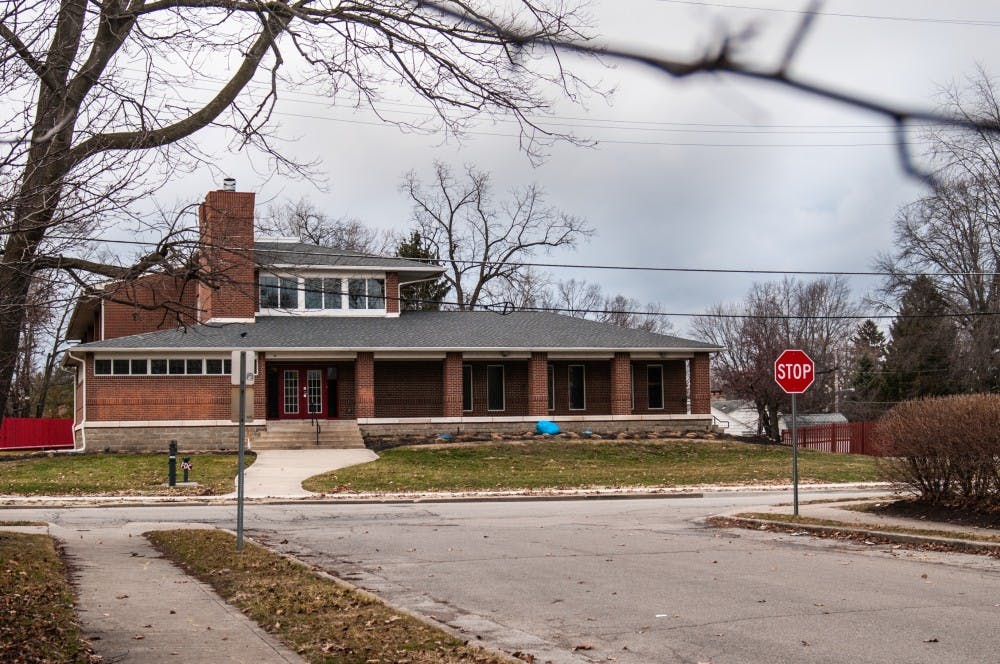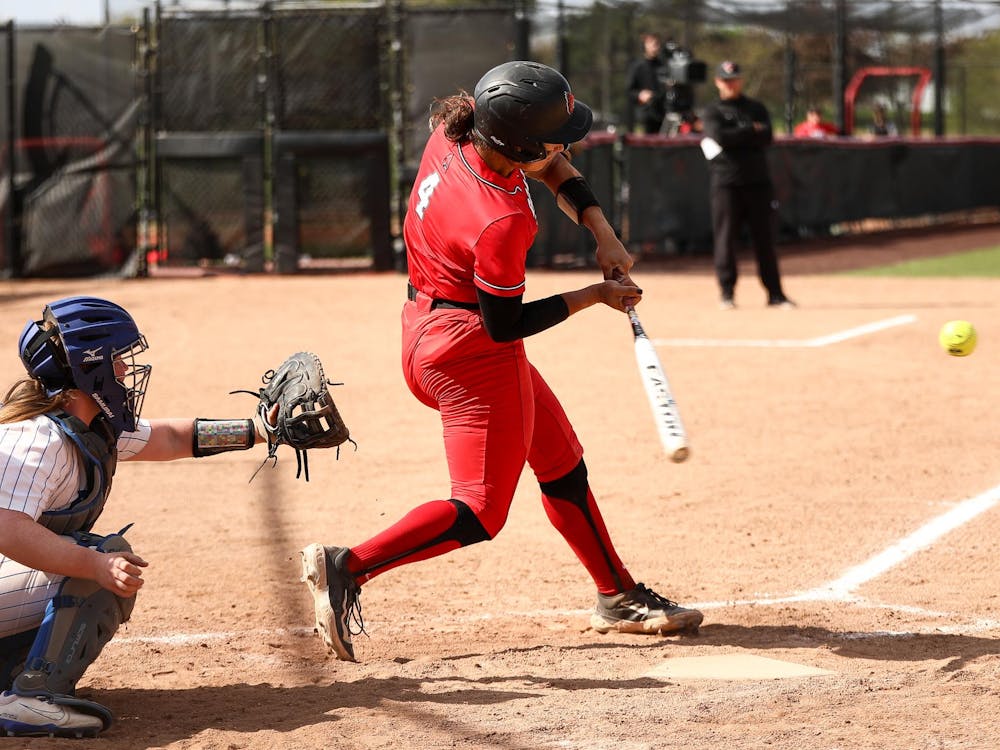Ball State Fraternity and Sorority Chapters
PHA Sororities
- Alpha Chi Omega
- Alpha Gamma Delta
- Alpha Omicron Pi
- Alpha Phi
- Chi Omega
- Delta Zeta
- Gamma Rho Lambda
- Kappa Delta
- Phi Mu
- Pi Beta Phi
- Sigma Kappa
IFC Fraternities
- Alpha Tau Omega
- Delta Tau Delta
- Lambda Chi Alpha
- Phi Delta Theta
- Phi Gamma Delta
- Phi Kappa Psi
- Phi Sigma Kappa
- Pi Kappa Phi
- Sigma Alpha Epsilon
- Sigma Chi
- Sigma Nu
- Sigma Phi Epsilon
NPHC Fraternities and Sororities
- Alpha Kappa Alpha Sorority, Inc.
- Alpha Phi Alpha Fraternity, Inc.
- Delta Sigma Theta Sorority, Inc.
- Kappa Alpha Psi Fraternity, Inc.
- Omega Psi Phi Fraternity, Inc.
- Phi Beta Sigma Fraternity, Inc.
- Sigma Gamma Rho Sorority, Inc.
- Zeta Phi Beta Sorority, Inc.
Source: Ball State University Fraternity and Sorority Life
As spring rush week began for the Greek Life community, fraternity and sorority members were having a different experience compared to last year.
Ball State’s Greek Life is in the process of rebranding as Fraternity and Sorority Life (FSL) to alleviate confusion for international students, “especially [those] who come from a Greek background,” said J. Chris Hager, associate director of student life.
A name change isn’t the only adjustment FSL is having to make this semester. The rebrand falls in the middle of the COVID-19 pandemic, which members are still learning to work around.
Alpha Tau Omega has put measures in place after having to quarantine in the fall semester, including mandatory mask wearing in public spaces, a bi-weekly cleaning and disinfecting of the fraternity house and shifting more of their meetings, such as induction ceremonies for new members, online.
Jack Johnson, 2020 secretary of Alpha Tau Omega, said one challenge was holding students’ interest during the extended online meetings.
“Everyone has dealt with the pandemic in different ways, and it has been draining for most people to say the least,” Johnson said via text message.
Johnson said he felt the toll of this energy-draining school year, but he and his fraternity brothers persevered. He said they promoted a message of brotherhood to make sure members knew they were “all in this together” and “not alone in how they’re feeling.”
“As a leader and a senior in trying times, I learned not to get down on myself for the way things are currently and that I should focus on doing all that I can to accommodate the younger guys in the fraternity to make sure they can reap all the benefits that Greek Life has to offer,” Johnson said. “It is important to be a part of the solution rather than part of the problem.”
Under normal circumstances, “Meet The Greeks,” an event hosted at the beginning of the school year, would be where new students could get a look at FSL on campus. However, COVID-19 forced recruitment events online.
“I would say that they’re handling it really well,” Hager said. “We’re seeing more of our Panhellenic chapters being more innovative as far as their chapter meetings [and] how they’re engaging their chapter members.”
Despite COVID-19, Hager said FSL’s retention numbers are at 91.1 percent, a 12.74-percent increase from last year. Hager said he thinks retention rates are high because FSL is encouraging members to “stay involved and contribute to the community.”
“We had almost 700 hours of hands-on community service that was completed by members of [the FSL] community,” Hager said. “I would say that is a big success.”
The Interfraternity Council (IFC), the governing council that works with the Panhellenic Association and the National Pan-Hellenic Council to oversee FSL, has been working with chapters during this time, including with community service.
The IFC has also helped accommodate necessary changes to routine activities, such as online instruction, to help fraternity members maintain good academic standing. The IFC provided community service opportunities for chapters to raise money for organizations like Dance Marathon, Secret Families of Muncie and Angel Tree. It also provided recruitment outlets through Zoom.
“Our implementation of online resources will be vital in our progression moving forward, as we now have a baseline of conducting our operations completely virtual, thus allowing us to integrate hybrid methods of in-person and virtual events,” said David Apple, former president of IFC.
To help adjust volunteer community service requirements, the Sigma Chi fraternity partnered with the DeHority Complex for a food drive in November 2020 to get students involved in helping the Muncie and Delaware County community. There were a total of 746 items donated to the food drive, with 235 of those being from Sigma Chi.
“The thing that I would love to accomplish is, obviously, serving our local community, but I also love the idea of a student government body cooperating with an off-campus organization, such as a Greek Life, especially because that is so rare,” said Joseph Gassensmith, president of DeHority Hall Council and member of Sigma Chi.
Because of the coronavirus pandemic, all donations had to be cleaned and organized by members of the DeHority Hall Council. Sigma Chi members also couldn’t go door to door accepting donations. Instead, they created an online message template that could be individualized before being sent and spread around.
Xavier Miller, head of philanthropy at Sigma Chi, said he wanted to help relieve food insecurity through the food drive.
“We realized Muncie was hurting right now and people aren’t doing the best, so we wanted to look for different ways to be able to help out our community,” Miller said.
Though in-person recruitment tours of fraternity houses are canceled because of the coronavirus pandemic, Sigma Chi and other FSL organizations are rushing new members via social media and Zoom for their spring recruitment week, which began Feb. 2 and will end Feb. 9.
Contact Jaden Hasse with comments at jdhasse@bsu.edu or on Twitter @HasseJaden.





